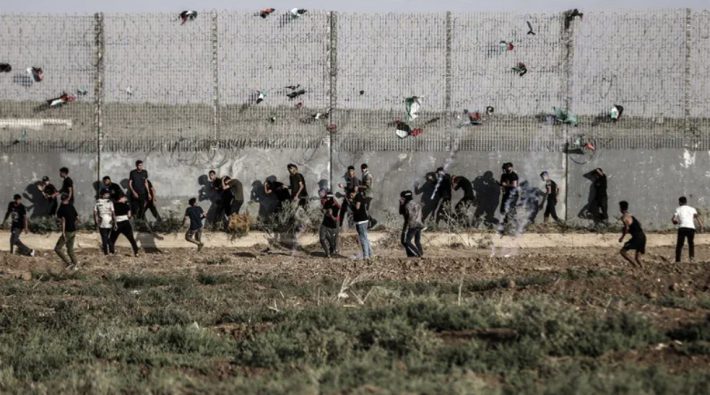Despite decades of political insistence, the two-state solution has unraveled—exposing a reality in which no viable Palestinian partner exists for peace or statehood.
By Ilan Goodman
The dream of a two-state solution is not merely fading—it is definitively over. In truth, it was never truly alive. From its inception, the two-state framework rested on flawed assumptions about governance, morality, and mutual coexistence—assumptions that have now collapsed under the weight of brutal reality.
For years, leaders and diplomats clung to the idea like a security blanket, convinced that carving out two nations from one land would end the conflict. But after decades of bloodshed, failed negotiations, and the October 7 massacre, this fantasy has been exposed. To continue believing in it today is to reject evidence in favor of illusion.
❓ Who Would Govern a Palestinian State?
This fundamental question remains unanswered. Hamas, once the dominant force in Gaza, is now a shattered regime, governing through fear and violence. If allowed to remain, Hamas would only serve as a stepping stone for even more radical jihadist factions—ISIS, Islamic Jihad, or new terror networks waiting in the wings. Civil war would be all but certain.
Even if Hamas were eradicated, a post-Hamas Gaza would face a dangerous power vacuum, ripe for extremist exploitation. Replacing one failed authority with another—even more unpredictable one—would only deepen the instability.
🌐 The UN’s Risky Proposal
The United Nations has proposed an “interim government” led by regional Arab powers like Egypt and the United Arab Emirates. Yet, this idea would place Gaza under foreign occupation, ironically fulfilling the very accusations of “colonialism” that have been wrongly hurled at Israel for years. It would strip Gazans of autonomy while handing control to external powers with unclear long-term intentions. How this aligns with the West’s democratic ideals remains to be explained.
🏛️ The Palestinian Authority: A Discredited Option
The Palestinian Authority (PA), marginalized for years, now presents itself as the rightful heir to Gaza. But the PA remains haunted by its legacy: founded by Yasser Arafat, led by Mahmoud Abbas, and still engaged in practices like “pay-for-slay,” rewarding terrorism financially. With no recent elections, diminishing legitimacy, and ongoing incitement, the PA inspires little confidence among its own people, let alone Israel or the international community.
📢 Civilian Protests—But No Call for Peace
Some Western analysts point to Gazan protests against Hamas as signs of political maturity. But chants of “Down with Hamas” have never been accompanied by calls for peace with Israel, denouncements of terror, or support for coexistence. Many of those protesting only turned on Hamas after their own suffering—not out of moral objection to Hamas’s violence against Israelis.
To assume these protests signal readiness for peace is to misread intention for desperation.
🧬 Tribal Structures and Chronic Instability
Palestinian society is not governed by democratic principles but by a complex web of tribes, clans, and patriarchal families with centuries of enmity. These intra-familial and inter-clan rivalries often explode into violence, even in times of relative calm.
The notion of a cohesive, self-governing Palestinian state ignores this deep-seated reality: left to its own devices, Gaza would likely descend into feudal chaos, with rival factions competing for dominance and control through bloodshed and revenge.
🩸 The Civilians of October 7
It is painful but necessary to confront the role many Gazans played in the October 7 atrocities. Civilians participated in kidnappings, looting, and the abuse of Israeli hostages. Testimonies like that of Mia Schem, a released hostage, confirm the complicity of everyday Gazans. While not every resident is guilty, the myth of widespread civilian innocence does not withstand scrutiny.
A society that celebrates or enables terror is not ready for sovereignty.
🌍 Relocation as a Growing Option
Amid all this, an alternative is emerging. Israeli and U.S. leaders—including Trump and Netanyahu—have floated the idea of voluntary relocation for Gazans. Surprisingly, recent polls indicate that a majority of Gazans would welcome the opportunity to rebuild their lives elsewhere. Several nations have reportedly expressed willingness to host them.
If implemented, the question of “who governs Gaza” becomes largely irrelevant. A depopulated Gaza eliminates the need to prop up failed regimes or negotiate with radicalized populations.
🪦 Time to Let Go of a Dead Dream
The two-state solution is no longer a solution—it is a historical artifact. Continued pursuit of this failed model distracts from more practical alternatives. It is not cynicism to reject the two-state model—it is realism born of experience.
In diplomacy, the first step toward progress is to let go of ideas that no longer serve the people they’re meant to help.
Let us mourn the two-state illusion, learn from its failure, and build a future rooted not in fantasy, but in truth.





